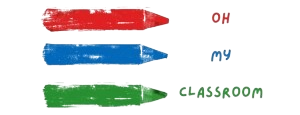In today’s world, teaching kids the value of honesty is more crucial than ever.
Honesty forms the foundation of strong relationships, self-esteem, and a sense of responsibility.
Engaging children in honesty activities not only imparts an essential life skill but also makes learning enjoyable and memorable.
Whether at home or in a classroom setting, these honesty activities for kids are designed to spark conversations, foster critical thinking, and instill the importance of truthfulness from an early age.
Through interactive and creative exercises, children can explore the concept of honesty in various contexts, helping them grow into trustworthy and dependable individuals.
“Honesty Journal”:
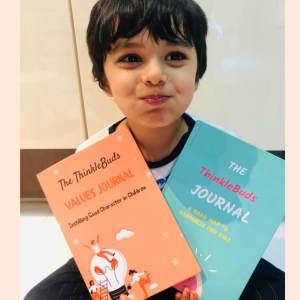
Give each child a notebook to create their own “Honesty Journal.” Encourage them to write about their experiences of being honest or times when they faced the temptation to be dishonest. This activity promotes self-reflection and provides an outlet for kids to express their thoughts and feelings about honesty.
In the “Honesty Journal” activity, kids have the opportunity to reflect on their personal experiences with honesty. By encouraging them to write about their interactions and decisions, they develop a deeper understanding of the impact that honesty can have on their lives. Through regular journaling, children learn to recognize moments when they chose honesty over dishonesty and gain insights into the positive outcomes that come from being truthful. This activity nurtures their emotional intelligence while reinforcing the importance of integrity in their actions.
“Truth or Tale” Game:

Create a game where kids take turns sharing two stories: one true and one fictional. The rest of the group must guess which story is honest and which is made up. This interactive activity engages children in critical thinking while highlighting the differences between truth and deception.
The “Truth or Tale” game brings an element of excitement to teaching honesty. By challenging kids to discern between fact and fiction, they develop their ability to detect inconsistencies and understand the subtleties of truthful narratives. This activity cultivates their analytical skills and encourages open discussions about the importance of honesty in building trust with others.
“Honesty Role Models”:

Introduce kids to historical figures, fictional characters, or real-life role models known for their honesty. Encourage them to research and present on these individuals, highlighting their contributions and the impact of their truthful behavior.
The “Honesty Role Models” activity showcases positive examples of honesty from different contexts. By researching and presenting on individuals known for their integrity, kids learn about the real-world impact of truthful behavior. This activity nurtures their admiration for those who uphold honesty and serves as inspiration for their own actions.
Related: 24 Wonderful Writing Prompts for First Graders
“Honesty in Storytelling”:

Read a story to the children in which the characters face ethical dilemmas involving honesty. Afterward, facilitate a discussion about the character’s choices and the consequences of their actions. Encourage the kids to brainstorm alternative honest solutions to the conflicts presented in the story.
Through the “Honesty in Storytelling” activity, children engage with moral dilemmas in a relatable context. By analyzing the choices characters make and considering alternative paths, kids learn to think critically about the implications of honesty. This activity encourages empathy and allows them to explore the multifaceted nature of truthfulness in various situations.
“Honesty Charades”:
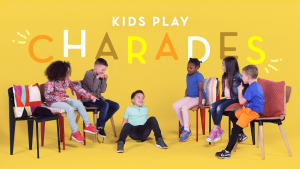
Play a game of charades with a twist. Instead of miming words or phrases, kids act out scenarios where honesty or dishonesty is involved. This active game encourages children to think on their feet and creatively express the concepts of truth and integrity.
“Honesty Charades” injects an element of fun into learning about honesty. By acting out different scenarios, kids not only enjoy an interactive experience but also internalize the lessons about honesty through active participation. This game encourages them to visualize the outcomes of honesty and deceit, making the abstract concept more concrete and memorable.
“Honesty Role-Play Skits”:
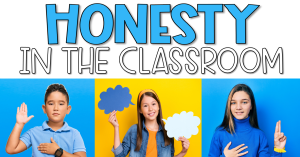
Divide kids into small groups and provide them with various scenarios involving honesty. Have each group create a short skit that demonstrates the consequences of both honest and dishonest choices. This activity fosters teamwork, creativity, and a deeper understanding of the impact of honesty.
The “Honesty Role-Play Skits” activity immerses children in real-life situations where honesty matters. By role-playing different scenarios, they gain a firsthand understanding of the effects of their choices. This hands-on approach encourages empathy, critical thinking, and collaborative learning as they collectively explore the outcomes of truthfulness and deceit.
“Honesty Treasure Hunt”:
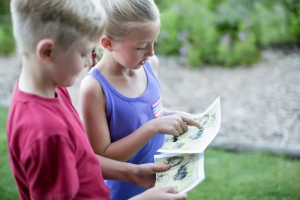
Organize a treasure hunt where kids follow clues and solve riddles to find hidden treasures. Along the way, incorporate ethical challenges that require them to make honest decisions. This activity blends adventure with moral lessons, encouraging kids to think ethically in a fun setting.
The “Honesty Treasure Hunt” combines excitement with ethical considerations. As kids embark on a journey to find hidden treasures, they encounter moments that test their integrity. By integrating these challenges into the adventure, children learn to apply honesty in practical scenarios, fostering a sense of responsibility and a greater understanding of the value of truth.
Related: 20 Amusing Number 2 Activities for Preschoolers
“Truthful Art Collage”:
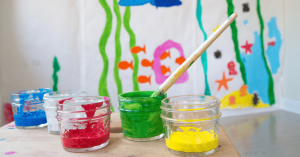
Provide magazines, newspapers, and art supplies to kids and ask them to create a collage that represents honesty. Encourage them to choose images and words that convey the concept of truthfulness. This artistic activity helps kids explore their understanding of honesty visually.
The “Truthful Art Collage” activity engages children in a creative exploration of honesty. By selecting and arranging images that symbolize truth, they delve into their personal interpretations of the concept. This visual exercise sparks discussions and encourages kids to articulate their thoughts on honesty, fostering a deeper connection to its significance.
“Honesty Storytime”:
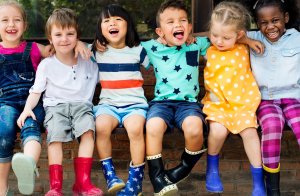
Read aloud stories or fables that revolve around the theme of honesty. After each story, engage the kids in a discussion about the characters’ decisions and the lessons learned. Encourage them to share personal experiences related to honesty as well.
“Honesty Storytime” weaves valuable lessons into engaging narratives. By connecting with fictional characters who face honesty dilemmas, kids are prompted to reflect on their own experiences and choices. This activity nurtures their ability to draw parallels between stories and real life, enhancing their comprehension of the importance of truthfulness.
“Honesty Reflection Circle”:
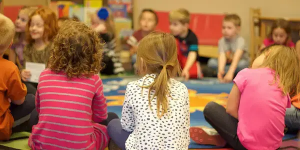
Gather kids in a circle and ask them to take turns sharing a time when they were honest and when they were tempted to be dishonest. Create an open and non-judgmental environment where they can discuss their feelings and motivations. This activity encourages self-awareness and empathy.
The “Honesty Reflection Circle” activity promotes open conversations about honesty in a supportive atmosphere. By sharing their experiences, children learn from each other’s stories and gain insights into the challenges and rewards of truthfulness. This reflective exercise encourages empathy, self-expression, and a deeper appreciation for the significance of honesty.
“Honesty Board Game”:
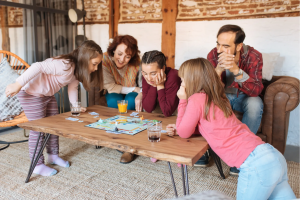
Create a board game centered around honesty, complete with spaces that present honesty-related challenges and decisions. The players’ choices determine their progress on the game board, fostering a playful environment for exploring ethical choices.
The “Honesty Board Game” transforms ethical considerations into interactive gameplay. By navigating challenges and making choices related to honesty, kids learn through firsthand experience the outcomes of different decisions. This activity promotes strategic thinking, decision-making skills, and a deeper understanding of honesty’s impact.
“Honesty Puppet Show”:
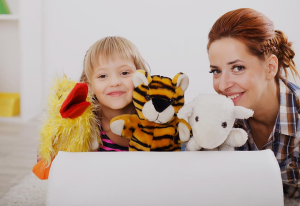
Provide kids with puppet-making materials and have them create puppets representing characters faced with honesty choices. Then, they can put on a puppet show, enacting scenarios where the characters decide between being honest or dishonest. This creative activity makes honesty concepts come to life.
The “Honesty Puppet Show” combines creativity with ethical considerations. Through crafting puppets and storytelling, kids bring honesty dilemmas to life in a playful manner. This activity encourages them to explore the complexities of truthfulness and deception while building their narrative and expressive skills.
“Honesty Discussion Cards”:
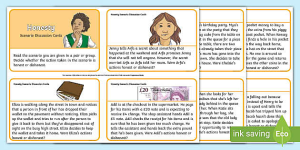
Prepare a set of cards, each with a different honesty-related scenario written on it. Allow kids to draw a card and discuss how they would react in that situation, emphasizing the importance of honesty. This activity promotes critical thinking and empathy.
The “Honesty Discussion Cards” activity prompts kids to navigate hypothetical honesty scenarios. By discussing their responses, they gain insights into the complexities of ethical decision-making. This activity nurtures their ability to think critically, empathize with others, and develop strategies for handling honesty challenges.
“Honesty Awards Ceremony”:
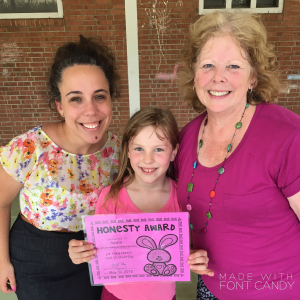
Organize an “Honesty Awards Ceremony” where each child receives an award or certificate for moments when they exhibited honesty. Encourage kids to share their stories and experiences with the group. This activity celebrates honesty and reinforces its positive impact.
The “Honesty Awards Ceremony” not only acknowledges kids’ truthful actions but also celebrates the values they uphold. By highlighting their achievements in honesty, this activity reinforces positive behavior and boosts their self-esteem. Sharing personal stories fosters a sense of camaraderie and creates a supportive environment for learning about honesty.
“Honesty Reflection Art”:
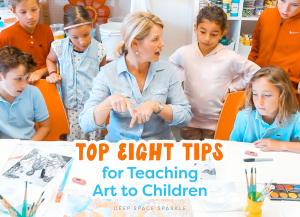
Provide kids with art supplies and ask them to create a visual representation of honesty. This could be a drawing, painting, or collage that captures their interpretation of what honesty means to them. Afterward, they can share their artwork and explain their choices.
The “Honesty Reflection Art” activity taps into kids’ creativity while encouraging them to reflect on the concept of honesty. Through visual expression, they translate abstract ideas into tangible art pieces, promoting a deeper understanding of the values they hold dear. This activity enables them to communicate their thoughts and feelings about honesty in a unique and meaningful way.
“Honesty Memory Game”:
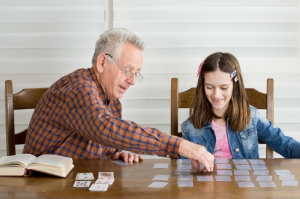
Create a memory game using cards, with each pair of cards featuring an image or scenario related to honesty. As kids flip over cards to find matches, they discuss the depicted situations and their honesty implications. This activity sharpens memory skills while fostering discussions about truthfulness.
The “Honesty Memory Game” blends cognitive development with ethical exploration. Through the challenge of finding matching pairs, kids engage with honesty-related scenarios in a fun and interactive way. Discussing the scenarios promotes critical thinking and empowers them to evaluate the impact of honesty in various scenarios.
“Honesty Song Creation”:
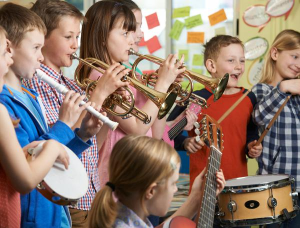
Encourage kids to write lyrics or compose a song about honesty. Provide musical instruments or backing tracks if available. They can perform their creations for the group, using music as a medium to express their thoughts and feelings about truthfulness.
The “Honesty Song Creation” activity allows children to express themselves creatively through music. Crafting lyrics and melodies centered around honesty provides an outlet for them to convey their understanding and emotions. This activity merges artistic expression with ethical exploration, fostering a deeper connection to the concept of honesty.
“Honesty Detective”:
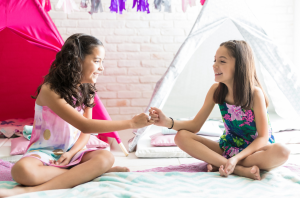
Give kids the role of “Honesty Detectives.” Provide them with scenarios or stories and have them investigate the characters’ choices to determine whether they were honest or dishonest. This activity nurtures analytical thinking and encourages kids to examine the motives behind actions.
In the “Honesty Detective” activity, children put on their analytical hats to dissect scenarios and identify truthful behavior. By examining the evidence presented, they learn to distinguish between honesty and dishonesty and develop the ability to critically assess others’ actions. This activity hones their detective skills while reinforcing the significance of integrity.
“Honesty Reflection Walk”:
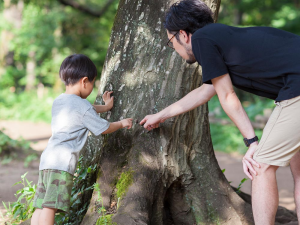
Take kids on a nature walk and encourage them to reflect on the idea of honesty. As they explore, prompt them with questions about times they were honest or faced honesty challenges. This activity combines the outdoors with contemplation and conversation.
The “Honesty Reflection Walk” merges mindfulness with ethical introspection. As kids connect with nature, they have the opportunity to reflect on their experiences related to honesty. The serene environment encourages open discussions and self-awareness, nurturing their understanding of the role honesty plays in their lives.
“Honesty Story Collage”:
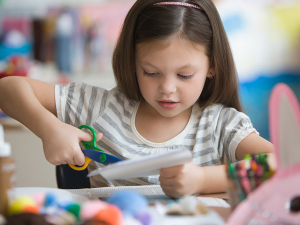
Provide kids with magazines, newspapers, and scissors to create a collage that tells a story about honesty. They can select images and headlines that depict various aspects of honesty and assemble them into a visual narrative. This artistic activity encourages creative storytelling.
The “Honesty Story Collage” activity invites children to become visual storytellers. By selecting and arranging images that convey the essence of honesty, they construct a narrative that speaks volumes about the importance of truthfulness. This creative endeavor prompts them to think imaginatively while delving into the nuances of honesty in diverse contexts.
Related: 20 Fun Rhyming Activities for Preschool & Kindergarten
